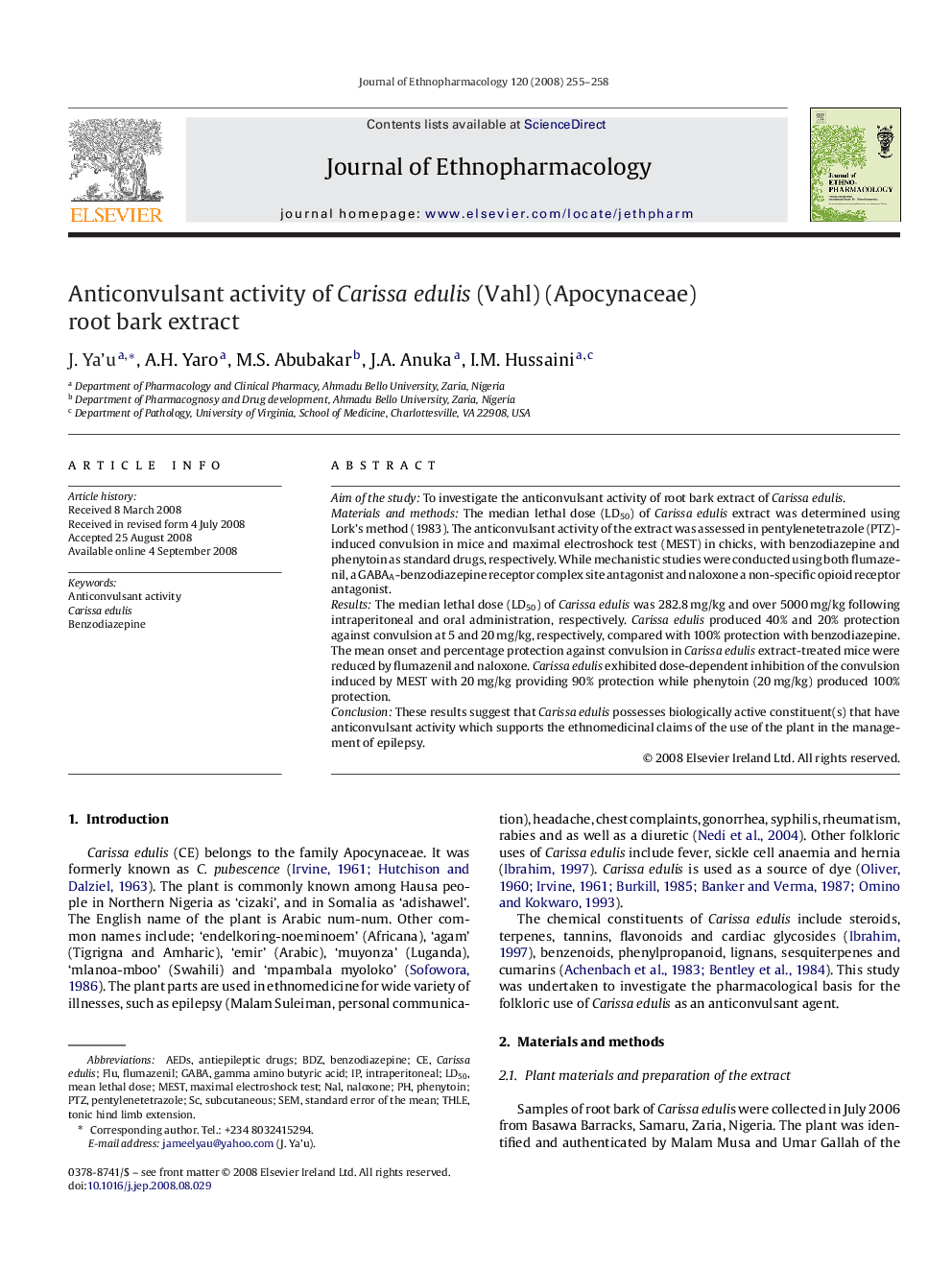| Article ID | Journal | Published Year | Pages | File Type |
|---|---|---|---|---|
| 2546856 | Journal of Ethnopharmacology | 2008 | 4 Pages |
Aim of the studyTo investigate the anticonvulsant activity of root bark extract of Carissa edulis.Materials and methodsThe median lethal dose (LD50) of Carissa edulis extract was determined using Lork’s method (1983). The anticonvulsant activity of the extract was assessed in pentylenetetrazole (PTZ)-induced convulsion in mice and maximal electroshock test (MEST) in chicks, with benzodiazepine and phenytoin as standard drugs, respectively. While mechanistic studies were conducted using both flumazenil, a GABAA-benzodiazepine receptor complex site antagonist and naloxone a non-specific opioid receptor antagonist.ResultsThe median lethal dose (LD50) of Carissa edulis was 282.8 mg/kg and over 5000 mg/kg following intraperitoneal and oral administration, respectively. Carissa edulis produced 40% and 20% protection against convulsion at 5 and 20 mg/kg, respectively, compared with 100% protection with benzodiazepine. The mean onset and percentage protection against convulsion in Carissa edulis extract-treated mice were reduced by flumazenil and naloxone. Carissa edulis exhibited dose-dependent inhibition of the convulsion induced by MEST with 20 mg/kg providing 90% protection while phenytoin (20 mg/kg) produced 100% protection.ConclusionThese results suggest that Carissa edulis possesses biologically active constituent(s) that have anticonvulsant activity which supports the ethnomedicinal claims of the use of the plant in the management of epilepsy.
